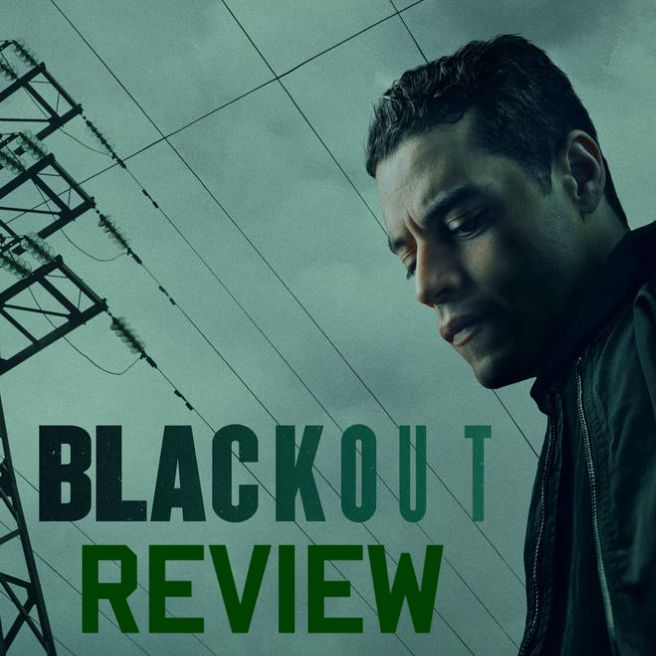Podcast Review: Blackout
Skip this one.
Scott Conroy’s thriller podcast, Blackout, is not good. In fact, the only reason I’ve been sticking with it is because it stars Emmy-winning actor Rami Malek, whom you may know as Freddie Mercury in 2018’s Bohemian Rhapsody. His role as the dissociative, antisocial computer hacker Elliot Alderson in Sam Esmail’s Mr. Robot is what brought this actor into my personal spotlight. Unfortunately, not even Malek’s distinct voice or major role in the production can save this bland thriller series from being forgettable and at certain points just plain bad.
Overview
Blackout is an audio thriller set against the semi-rural backdrop of New Hampshire. From the get-go, this podcast wants you to know that it isn’t like the others. It features next-level audio, apparently enhanced by the use of Sonos speakers, and the entire show is presented by Endeavor Audio. Malek plays Simon Itani, a radio DJ in the small town of Berlin, New Hampshire. A large-scale power outage causes a panic, and he must try to keep the community informed and sane by speaking to them via his radio show.
Phones Bad, People Good
It’s not hard to pick up on the message the show pushes, which is that we’re too obsessed with our technology and it’s driving us apart as human beings. Whether or not I agree with this theme doesn’t matter. What does matter is how it is presented, and in Blackout, the implementation of this message leaves much to be desired. It fails to be subtle in any way, with a villain at one point explaining why he/she caused the blackout in cringeworthy detail. Most characters either obsess over their phones or openly talk about how they’re disconnecting us from one another, but never both.
The ongoing theme about our obsession with phones and avoidance of real conversations is a simple and overdone message, which is part of what makes the series so uninteresting. A good theme is with the creator from the beginning, and a work of art is usually built around said theme to exemplify it. Blackout‘s theme is clichéd and simplistic, allowing for easy message-pushing but bland storytelling. When I listened, I felt like the idea for a radio host keeping a small town calm during a crisis (such as a blackout) came first in brainstorming, followed by a phones bad, people good! message to give the series a thematic finish.
Even if the creator of Blackout had the idea for the theme before he came up with the series, the narrow room for subtlety should’ve tipped him off that expansion of the “technology separates us from the world” motif was necessary. But instead of providing a nuanced or unique perspective on our relationship with technology à la Black Mirror, the message here is both produced and taken at face value.
If you’re going to push a theme, it needs to feel fresh. This goes for themes that are wholly original and those that build upon simplistic examples to say something new. Otherwise, in the case of Blackout, the whole point of the series is bogged down by an ever-present message that’s been done (better) countless times before.
The Bad Kind of Non-Stop Action
Remember, this is an audio series. And as an audio series, the audience’s interest is constantly at risk. That may sound harsh, considering tons of podcasts are entertaining, thrilling, and fascinating. But while they succeed in being original with their ideas and formats in at least some aspects, Blackout insists on following the formula of every bland, melodramatic thriller series that finds its way onto Amazon Prime or Netflix. There’s a reason these shows don’t last long before they’re cancelled. But I digress.
Things are constantly happening to keep you tense and in on the action. One moment, Simon sees an explosion and in the next he gets shot by the person who triggered it. The worst character, Lincoln, goes from helping his friends drag a jet pilot’s body to holding said friends hostage after five minutes of talking to a crazy hunter. You get the idea. It’s too much all at once.
It doesn’t help that the series is plagued with poorly written characters. Besides Lincoln, who does and says things out of nowhere and with little buildup, most characters in Blackout are either frustratingly dull or clichéd. Again, watch any dug-up Amazon original and you’ll have met all the characters in this series before even listening to it.
The stakes in this series never feel high, thanks to the barrage of predictable action sequences starring uninteresting characters. Any thrills of which this podcast hopes to consist are squandered by the failure to subvert tropes most often present in forgettable web shows.
Conclusion
Despite listening recently, I barely remember anything from this supposedly unforgettable thriller. Don’t get me wrong; it’s definitely a thriller. But for a series with such a forced and simplistic theme, tiring action, and irritating characters, it needs to be a thriller to maintain any interest. With all that said, I’m giving Blackout a 3/10. Thanks to its weightlessness, only Rami Malek and a couple other talents carry this series. Pardon the wordplay.











